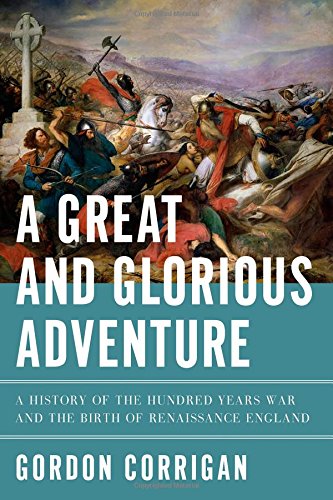
A Great and Glorious Adventure
A Military History of the Hundred Years War
کتاب های مرتبط
- اطلاعات
- نقد و بررسی
- دیدگاه کاربران
نقد و بررسی

March 31, 2014
The politics of the Hundred Years War (1337–1453) form a backdrop for minute dissections of its major battles as British military historian Corrigan (The Second World War) addresses not only battle formations and weapons but also the logistics of feeding men, horses, and an array of other noncombatants. The number of fighting men, notoriously inflated by medieval chroniclers, is brought to logical proportions, and Corrigan even calculates the number of geese needed to provide fletches for the arrows. He writes with knowledge and humor, especially in his footnotes, as he analyzes the battles of Crécy, Poitiers, and Agincourt while correcting myths often derived from Shakespeare. However, his bias shows in an archaic jingoism: England is superior in all ways; French royalty are mad or subject to “sloth and indifference” and “refuse to face facts and recognize that their way of waging war was obsolete”; and Joan of Arc, along with her victories, is dismissed in four pages. Corrigan blames the English loss on the death of Henry V, “the greatest Englishman that ever lived,” and on the French learning how to fight like the English. The facts are solid, but Corrigan’s point of view harks back to anachronistic dreams of empire.

























دیدگاه کاربران